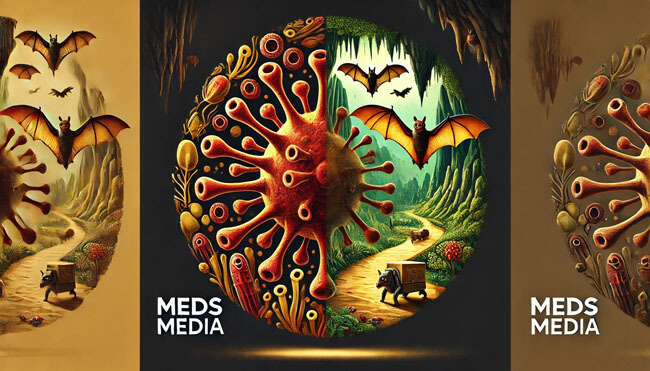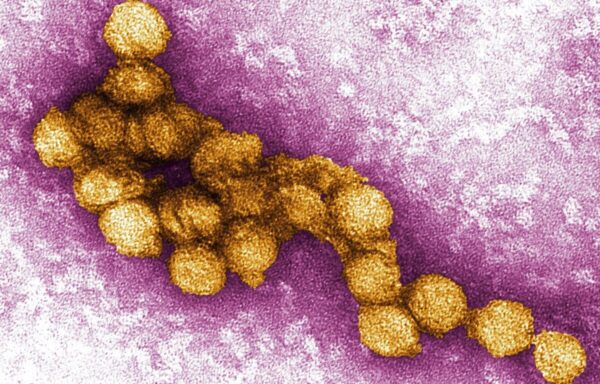
West Nile Virus (WNV) is a mosquito-borne virus that causes illness in humans, birds, and other animals. It was first identified in Uganda’s West Nile district in 1937 and has since become a global health concern. The virus primarily spreads through the bite of infected mosquitoes, especially from the Culex species. While many people infected with WNV remain asymptomatic, others develop flu-like symptoms, and in rare cases, severe neurological diseases such as encephalitis or meningitis.
What is West Nile Virus?
West Nile Virus belongs to the Flavivirus genus, which includes other significant viruses like Zika, Dengue, and Yellow Fever. The virus is primarily transmitted to humans through the bite of an infected mosquito, which acquires the virus by feeding on infected birds. Birds act as the primary hosts for WNV, but humans and other animals can become incidental hosts when bitten by infected mosquitoes.
The majority of West Nile infections are asymptomatic, but in certain cases, individuals can experience severe and potentially fatal symptoms. The severity of the illness depends on the immune system of the affected person, with older adults and immunocompromised individuals being at higher risk of developing serious complications.
Symptoms of West Nile Virus
Acute Symptoms: (Mild or Moderate Cases)
About 20% of individuals infected with West Nile Virus experience mild to moderate symptoms, referred to as West Nile fever. These symptoms typically develop 2 to 14 days after being bitten by an infected mosquito and may last for a few days to several weeks. They include:
- Fever: A sudden onset of fever is one of the most common symptoms.
- Headache: Persistent headaches that may resemble a tension or sinus headache.
- Fatigue: General weakness and tiredness are common, sometimes lasting for weeks after other symptoms subside.
- Body Aches: Muscle and joint pains are often felt.
- Rash: Some patients may develop a rash, usually on the chest, back, or stomach.
- Swollen Lymph Nodes: Enlargement of lymph nodes, particularly in the neck, is a common symptom.
These symptoms are generally self-limiting and resolve without the need for medical intervention.
Severe Symptoms: (Neuroinvasive Disease)
Less than 1% of individuals infected with West Nile Virus develop a neuroinvasive disease, which can affect the brain and spinal cord. Severe symptoms include:
- High Fever: Persistent, high-grade fever that is difficult to control.
- Severe Headache: Intense headache that does not improve with standard pain relief.
- Stiff Neck: Neck stiffness, which can indicate the onset of meningitis (inflammation of the brain and spinal cord membranes).
- Disorientation or Confusion: Cognitive impairment, difficulty concentrating, and confusion can occur.
- Seizures: In severe cases, patients may experience convulsions or seizures.
- Tremors or Muscle Weakness: Loss of muscle coordination and strength, leading to muscle weakness or paralysis.
- Coma: In rare and severe cases, West Nile Virus can cause a coma or life-threatening neurological damage.
Life-Threatening Symptoms:
- Encephalitis: Inflammation of the brain, which can cause long-term neurological damage or death.
- Meningitis: Inflammation of the membranes surrounding the brain and spinal cord.
- Acute Flaccid Paralysis: Sudden muscle weakness, similar to polio, that may affect one or more limbs.
Severe symptoms are more likely in older adults and people with weakened immune systems. Long-term neurological damage can occur in some survivors of severe West Nile Virus disease, with symptoms such as muscle weakness, fatigue, and memory loss.
Transmission of West Nile Virus
Mosquito-Borne Transmission:
The primary mode of transmission for West Nile Virus is through the bite of infected Culex mosquitoes. These mosquitoes become infected after feeding on birds that carry the virus. Once infected, the mosquitoes can transmit the virus to humans, horses, and other animals.
Birds as Primary Hosts:
Birds, particularly certain species like crows, sparrows, and robins, are the natural reservoirs of West Nile Virus. The virus circulates between birds and mosquitoes in a cycle. When mosquitoes bite infected birds, they acquire the virus, and then they can transmit it to humans and other animals.
Other Routes of Transmission (Rare):
While mosquito bites are the most common way the virus spreads, there are some rare cases of transmission through other routes:
- Blood Transfusions: In rare cases, West Nile Virus has been transmitted through blood transfusions. However, blood screening measures have significantly reduced this risk.
- Organ Transplants: There have been instances where West Nile Virus was transmitted through organ transplants from infected donors.
- Mother-to-Child Transmission: Pregnant women, in rare cases, may transmit the virus to their fetus, and there is some evidence that it can be transmitted through breast milk.
Prevention of West Nile Virus
Since there is currently no vaccine or specific antiviral treatment for West Nile Virus, prevention is the most important measure to reduce the risk of infection.
Personal Protection from Mosquito Bites:
- Use Insect Repellents: Apply insect repellents containing DEET, picaridin, or oil of lemon eucalyptus when spending time outdoors, especially during dusk and dawn when mosquitoes are most active.
- Wear Protective Clothing: When outdoors, wear long sleeves, pants, and hats to reduce skin exposure to mosquitoes.
- Install Window and Door Screens: Ensure windows and doors are properly screened to prevent mosquitoes from entering your home.
- Sleep Under Mosquito Nets: In areas with a high prevalence of West Nile Virus, use mosquito nets, especially in homes without air conditioning or window screens.
Reduce Mosquito Breeding Grounds:
- Eliminate Standing Water: Mosquitoes breed in stagnant water. Regularly empty standing water from flowerpots, gutters, buckets, pool covers, pet water dishes, and birdbaths.
- Use Larvicides: In areas with significant mosquito activity, larvicides can be applied to standing water to kill mosquito larvae before they develop into adults.
Community-Level Prevention:
- Mosquito Control Programs: Communities can implement mosquito control programs that include regular spraying of insecticides in areas with high mosquito populations.
- Surveillance of Bird Populations: Monitoring bird populations for signs of West Nile Virus can help predict outbreaks.
Diagnosis and Treatment of West Nile Virus
Diagnosis:
West Nile Virus is diagnosed through a combination of clinical symptoms, medical history, and laboratory tests. Since many of the symptoms of West Nile Virus overlap with other viral infections, diagnostic tests are crucial for confirmation.
- Blood Tests: A blood test can detect the presence of antibodies produced by the body in response to the virus.
- Lumbar Puncture: In cases of suspected neuroinvasive disease (e.g., encephalitis or meningitis), a lumbar puncture (spinal tap) may be performed to analyze cerebrospinal fluid (CSF).
- Imaging Tests: For severe neurological symptoms, imaging tests such as MRI or CT scans may be used to detect inflammation or abnormalities in the brain and spinal cord.
Treatment:
There is no specific antiviral treatment for West Nile Virus. Treatment is generally supportive and focuses on alleviating symptoms.
For Mild Cases:
- Rest: Most people with mild symptoms recover with adequate rest.
- Hydration: Drinking plenty of fluids helps to prevent dehydration, especially if fever and sweating occur.
- Over-the-Counter Pain Relievers: Medications like acetaminophen or ibuprofen can be used to reduce fever and relieve muscle aches and headaches.
For Severe Cases:
Hospitalization may be required in severe cases, especially those involving neuroinvasive disease. Treatments may include:
- Intravenous Fluids: To maintain hydration and electrolyte balance.
- Pain Control: Stronger medications may be needed to manage severe pain.
- Respiratory Support: In some cases, patients may require mechanical ventilation if their breathing is compromised.
- Seizure Control: Anti-seizure medications may be necessary for patients experiencing convulsions.
Homeopathic Remedies for West Nile Virus
While there is no cure for West Nile Virus, homeopathy can offer supportive treatments to manage the symptoms, particularly in mild cases. Below are some commonly used homeopathic remedies for West Nile Virus symptoms.
1. Gelsemium
- Indication: For flu-like symptoms, including fever, headache, and fatigue.
- Symptoms: General weakness, heaviness of limbs, and blurred vision.
- Uses: Helps alleviate flu-like symptoms such as fever, headache, and fatigue.
2. Eupatorium Perfoliatum
- Indication: For muscle and bone pain.
- Symptoms: Severe body aches, bone pain, and headache.
- Uses: Particularly useful for relieving muscle and bone pain, symptoms often associated with West Nile fever.
3. Rhus Toxicodendron
- Indication: For joint and muscle pain with restlessness.
- Symptoms: Stiffness, muscle aches, and pain that improves with movement.
- Uses: Helps in reducing joint pain, stiffness, and restlessness.
4. Belladonna
- Indication: For high fever with delirium.
- Symptoms: High fever, throbbing headaches, sensitivity to light, and disorientation.
- Uses: Beneficial for high fever, headache, and neurological symptoms.
5. Bryonia
- Indication: For fever with body aches and dry cough.
- Symptoms: Muscle pain, headaches, and dry, painful cough.
- Uses: Addresses fever, pain, and respiratory symptoms that may accompany West Nile infection.
6. Apis Mellifica
- Indication: For skin rash and swelling.
- Symptoms: Skin rashes, swelling, and stinging pain.
- Uses: Useful for treating skin reactions like rashes and swelling.
Insights and Homeopathic Improvements
Homeopathic remedies are best used as complementary therapies to conventional treatments, especially in mild cases of West Nile Virus infection. These remedies aim to enhance the body’s natural healing process and manage symptoms. However, for severe symptoms and neuroinvasive disease, prompt medical attention and hospitalization are crucial.
Conclusion
West Nile Virus is a serious mosquito-borne disease that can range from mild, flu-like symptoms to life-threatening neurological complications. Prevention through mosquito control and personal protective measures remains the most effective way to reduce the risk of infection, as there is no vaccine or specific treatment for the virus. In addition to conventional medical approaches, homeopathic remedies may offer supportive care in managing symptoms and improving recovery.
Disclaimer:
This information is for educational purposes only and is not a substitute for professional medical advice, diagnosis, or treatment. Always consult your physician or a qualified healthcare provider regarding any medical condition. Use homeopathic remedies under the guidance of a certified practitioner.
Why Meds Media guides are different
We focus on clear, practical explanations of homeopathic and natural health topics so you can understand remedies, symptoms, and lifestyle changes in simple language.
Meds Media is an educational resource only. Always consult a qualified doctor or homeopathic practitioner before starting, stopping, or changing any treatment.
Similar Posts You may also like
Zincum Picricum Homeopathic Medicine & Personality | Uses, Benefits & Indications
Zincum Phosphoricum Homeopathic Medicine & Personality | Uses, Benefits & Indications
Zincum Iodatum Homeopathic Medicine & Personality | Uses, Benefits & Indications
Zincum Bromatum Homeopathic Medicine & Personality | Uses, Benefits & Indications
Zea Homeopathic Medicine & Personality | Uses, Benefits & Indications
Zincum Aceticum Homeopathic Medicine & Personality | Uses, Benefits & Indications
Zincum Cyanatum Homeopathic Medicine & Personality | Uses, Benefits & Indications
Zincum Muriaticum Homeopathic Medicine & Personality | Uses, Benefits & Indications
Zincum Oxydatum Homeopathic Medicine & Personality | Uses, Benefits & Indications
Zincum Sulphuricum Homeopathic Medicine & Personality | Uses, Benefits & Indications

Phosphorus Homeopathic Medicine & Personality | Uses, Benefits & Indications
Causticum Homeopathic Medicine & Personality | Uses, Benefits & Indications

Blood Clot in Eyes: Symptoms, Homeopathic Treatment & Prevention

Marburg Virus Disease: Causes, Symptoms & Treatment

Veratrum Viride Homeopathic Medicine & Personality | Uses, Benefits & Indications

Spongia Tosta Homeopathic Medicine & Personality | Uses, Benefits & Indications

Zingiber Officinale Homeopathic Medicine & Personality | Uses, Benefits & Indications



